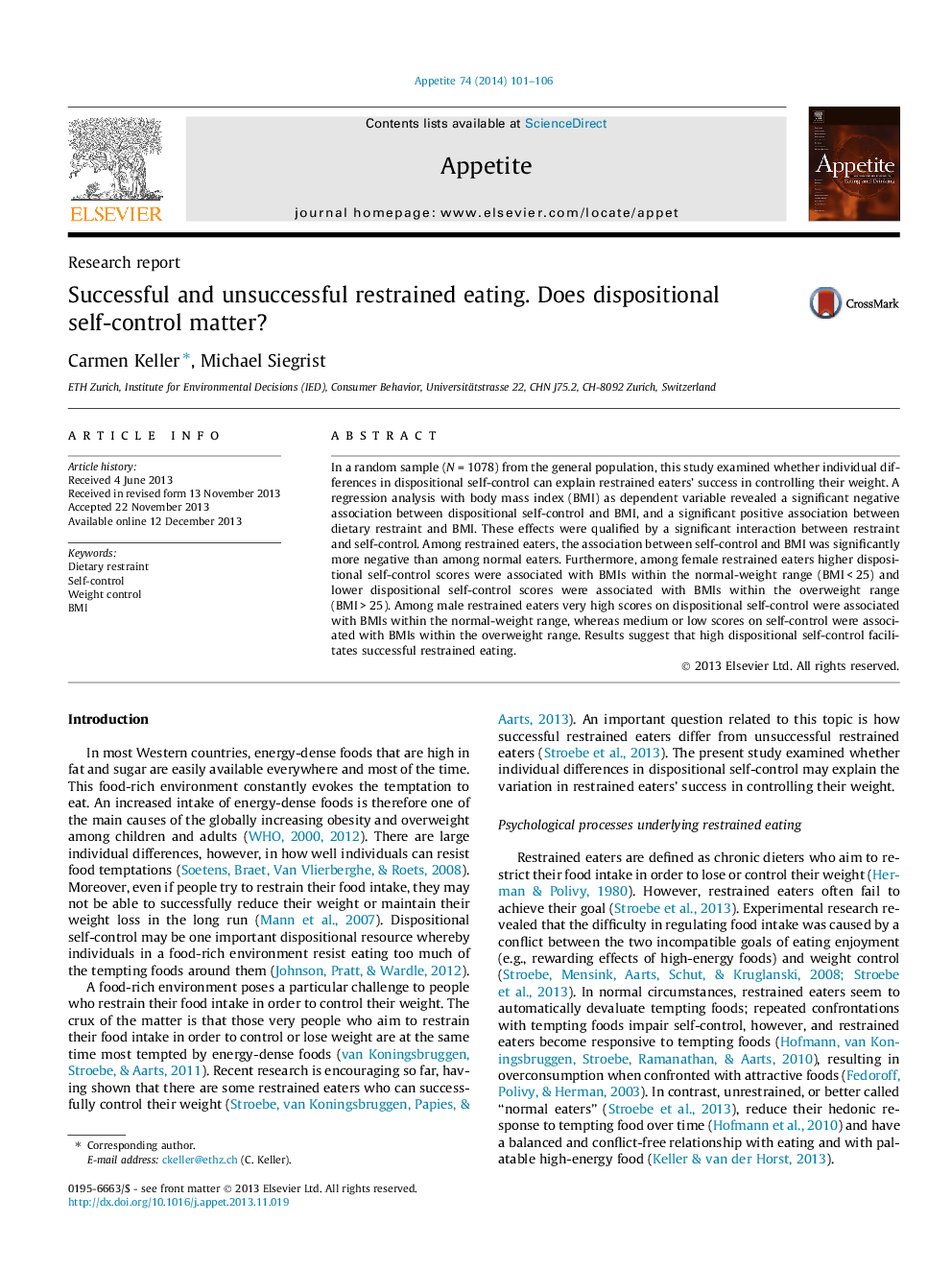| Article ID | Journal | Published Year | Pages | File Type |
|---|---|---|---|---|
| 939610 | Appetite | 2014 | 6 Pages |
•Dispositional self-control facilitates successful restrained eating.•Female restrained eaters with high self-control had a normal BMI.•Male restrained eaters with very high self-control had a normal BMI.
In a random sample (N = 1078) from the general population, this study examined whether individual differences in dispositional self-control can explain restrained eaters’ success in controlling their weight. A regression analysis with body mass index (BMI) as dependent variable revealed a significant negative association between dispositional self-control and BMI, and a significant positive association between dietary restraint and BMI. These effects were qualified by a significant interaction between restraint and self-control. Among restrained eaters, the association between self-control and BMI was significantly more negative than among normal eaters. Furthermore, among female restrained eaters higher dispositional self-control scores were associated with BMIs within the normal-weight range (BMI < 25) and lower dispositional self-control scores were associated with BMIs within the overweight range (BMI > 25). Among male restrained eaters very high scores on dispositional self-control were associated with BMIs within the normal-weight range, whereas medium or low scores on self-control were associated with BMIs within the overweight range. Results suggest that high dispositional self-control facilitates successful restrained eating.
